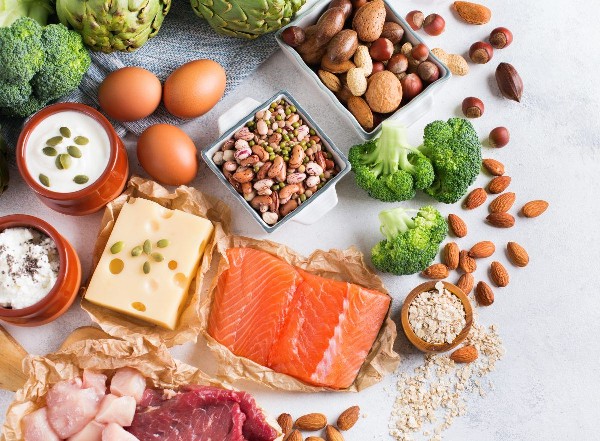
Click Here for Free Bodybuilding and Fitness Magazine Subscription
How to Time Meals for Muscle Gain
Bodybuilding and Fitness Recipes
Build muscle and burn fat the natural way!
Use these time tested and great tasting recipes to gain mass, increase energy and strength all while getting ripped.
Includes complete recipes for meals, snacks, deserts, homemade protein bars and ultimate protein drink recipes.
Go to https://www.trulyhuge.com/cookbook.htm
Can Meal Timing Help You Build Muscle?

If you want to build new muscle mass, then you have to get your nutrition in order, and that means taking in enough calories and protein to support growth. But will changing WHEN you take in those nutrients make a difference in the results you achieve?
Meal timing is a controversial topic on the fitness scene, and opinions are all over the place on what constitutes optimal timing, or whether it even matters at all.
Let’s take a look at the issues involved and try to come to a reasonable conclusion.
Let The Protein Guide You
As a bodybuilder looking to build lean mass, you need to take in somewhere around one gram of protein per pound of body weight each day. That’s a rule of thumb that has played out well in the real world over several decades, though some guys may need more or less.
For our purposes, one gram per pound is our guiding light.
Researchers have found that consuming 30 grams of protein at one time provides the same increase in muscle synthesis as eating 90 grams of protein at a sitting, which means the excess will go to provide energy OR be stored as fat. You don’t really want either of those things to happen, because protein is an expensive energy source (and not the preferred one for your body, either), and nobody wants to add fat.
So for a 150-pound man eating around 150 grams of protein a day and 20-40 grams per meal, he’s looking at 4-7 “feedings” daily.
Figure that you’ll need at least 2-3 hours for digestion each time, and you can begin to get an idea of how you might spread your food out if you were to build your plan around evenly-spaced meals.
The Anabolic Window
With that baseline established, it’s worth considering the impact of the the so-called “Anabolic Window.”
The anabolic window is the period of time that opens right around the beginning of your workout and extends for about an hour after you finish training, and many muscle enthusiasts insist that it is the most productive time for eating.
You begin to tear down muscles and deplete your glycogen levels as soon as you start lifting, so you need to replace energy and amino acids for repair. In addition, your muscles’ ability to absorb nutrients is better after training than at any other time of the day, at least according to the theory.
By supplying carbs and protein during this “window,” then, you get a head start on the recovery process.
Scientists have taken an interest in this idea, too, and a 2012 study from researchers at Northern Illinois University found there may be some slight benefit to taking individual amino acids before a workout, but not in eating whole-food proteins. The scientists did note that protein synthesis is enhanced for about three hours after eating proteins, which may suggest an advantage to post-workout nutrition.
A subsequent (2013) literature review found that muscle growth is highly correlated to overall protein consumption, but not necessarily to meal timing.
So Does Timing Matter?
Available evidence points to the post-workout period as being important for recovery and muscle growth, but that does not necessarily mean you need to take any drastic measures during that time frame.
If you divide your meals relatively evenly throughout the day, you will maintain a stable blood sugar profile and should have plenty of energy for training. Take your workout time into consideration when planning your meal times so that one of them falls naturally in the period not long after your workout.
This will allow you to maintain a normal life and schedule while also taking advantage of any boost that near-training nutrition might provide you. Three decent meals and a couple of snacks is convenient for most lifters and fits well with the majority of social calendars, as well.
Of course, you should ask your doctor to weigh in on any dietary changes, and many specific conditions like diabetes require a specific eating schedule.
For most lifters, though, no exotic meal plans or food calendars are required to support muscle growth.

